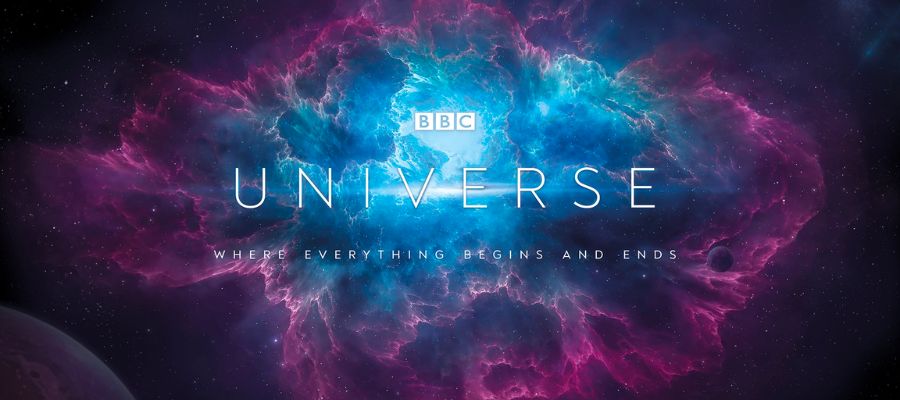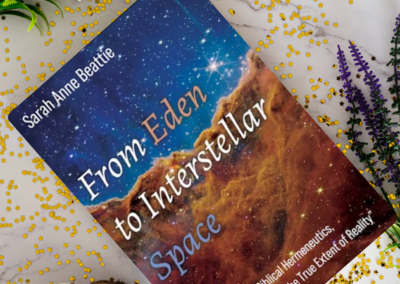
This episode, entitled ‘The Sun: God Star’, appears to give some validation to the possibility that physicists may be the new psalmists proclaiming the wonders of the heavens. Hailed as ‘a spiritual sequel to 2019s The Planets,’ the episode is advertised as beginning with ‘a hymn to the great luminous bodies that bring light and warmth to the universe.’ These are bodies that Cox refers to as gods; gods who were at first ‘monsters,’ as ‘violent and volatile giants’ battling for survival against the relentless pull of gravity, with some remaining as ‘jealous guardians’ of their precious elements. But they are also gods that ‘breathe life into dust’ and create and craft ‘everyone we love, everything we value, [and] our supreme accomplishments as a civilisation.’ In this respect, he can say that ‘we don’t need to invent imaginary gods to explain the universe’ as ‘we can replace them with the real thing.’ This is in the form of an entity with the vital property of ‘magnificent dependability’ that is able ‘to create and nurture a civilization.’ It is, however, a limited dependability as the stars are ‘mortal gods’ who, together with the possibility of life and meaning, will eventually disappear, with the universe estimated to return to darkness in approximately 10 trillion years.
Visually this episode is a feast, as awe-inspiring computer generated images of the cosmos alternate with dramatic wilderness landscapes in Iceland, Dubai and the Azores. These are accompanied by soaring cinematic music, which at times appears to take the form of an angelic chorus heralding the glory of gods; gods that, according to Cox, have emerged ‘out of the maelstrom’ allowing to him to proclaim, ‘and then there was light.’ Critics of the series have referred to the ‘dumbing down’ of physics and the overuse of emotive language and poetic musing about the discoveries of science, but in a previous interview Cox explained his belief that:
“if we’re really going to address the question of what these discoveries mean, we have to use the whole intellectual armoury available to us as humans. So that’s literature, music, philosophy and theology, and just all of human culture.”
It is, therefore disappointing that, while frequently appearing to adopt theological language and concepts and repeatedly referring to the question of meaning, he appears to approach this question with very little depth. In the opening segment of the episode, the issue of the ‘biggest questions’ is raised in relation to how the universe came to be, why we are here and how will it all end; questions that he states must be faced ‘if we are ever to acquire a truly deep understanding of ourselves.’ But the issue of whether a ‘truly deep’ understanding of the complexities of the human condition can be achieved through the discoveries of astrophysics is not addressed. Cox claims that it is ‘life’ and ‘you and me’ as ‘nature’s most magnificent creation’ that brings ‘meaning to the universe,’ but his additional comment that ‘life is just chemistry’ appears to restrict how this sense of ‘meaning’ might be understood. It is restriction that is also evident when, in concluding what he describes as ‘the greatest story ever told,’ he suggests that the eventual death of the Sun ‘will mark the end of a glorious time in the history of our galaxy, where meaning, where science and literature and art and poetry and music existed here.’
The images of Cox as a solitary figure in the landscapes of extraordinary natural beauty that still remain on our planet add to the sense of wonder generated by the images of the cosmos. The episode does not, however, address the threat to these landscapes that has emerged from the fact that as ‘the magnificent expression of the laws of nature’ that Cox claims, our capacity for creativity appears to be matched by a capacity for destruction. Cox’s emotive proclamation that the stars leave us a profound legacy in allowing ‘us to illuminate the darkness too,’ is presumably not intended to refer to the current illumination of the sky by the missiles that are destroying Ukrainian cities or the threat of nuclear war. It is a threat that Cox might argue is not relevant to, or is outside the scope of, the series but it is a threat that has emerged from the discipline of physics and is a reminder that while there is much to celebrate there is also much to lament; a fact that the biblical psalmists knew only too well.
At the UK premiere of Universe, Cox described the series as ‘a very long answer to the short question; “What does it mean to live a finite, fragile life in an infinite eternal universe?” It is an ambitious undertaking and this first episode does not suggest that there will be a satisfactory answer to a question that cannot ignore the perennial human quest to understand the fragility arising from the pain and misery of suffering and death; a quest that is evident from the earliest forms of literary expression on the clay tablets of the ancient Near East to the current plethora of self-help books that are on offer today. Cox’s popularity and ability to fill theatres to capacity when he goes on tour indicate that his question is important. But, while acknowledging the need for ‘the whole intellectual armoury in the search for meaning,’ Cox has not so far utilised it at other than a superficial level. It can only be hoped that he will and in so doing might heed the words of philosopher Thomas Nagel who suggests that:
We don’t want an understanding of everything in terms of particle physics. We wouldn’t feel we understood biological processes if someone were to give us a particle physics account of them because we don’t see the world in those terms: instead, we want to understand the world in the categories in which we perceive it and carve it up naturally.
As Cox reveals, physics offers extraordinary insights into our universe and, with the recent launch of the James Webb telescope, there is much to look forward to as new discoveries are made. The discovery of a sense of meaning that will satisfy the human desire to understand the pain and suffering arising from the fragility and vulnerability of both ourselves and the environment in which we live may, however, be more elusive. It will be interesting to see how this series develops but at this stage it appears that the viewer may be left wanting more. This is not only more physics but, if Cox continues to venture into the territory of meaning, more use of an intellectual armoury that includes a theological perspective and can acknowledge the contribution of the biblical psalmists to an understanding of meaning that resonates with our fragile and finite lives.
Book of the BBC series: The Universe by Andrew Cohen. More info HERE

Sarah Beattie (Ph.D cand., Melbourne)



